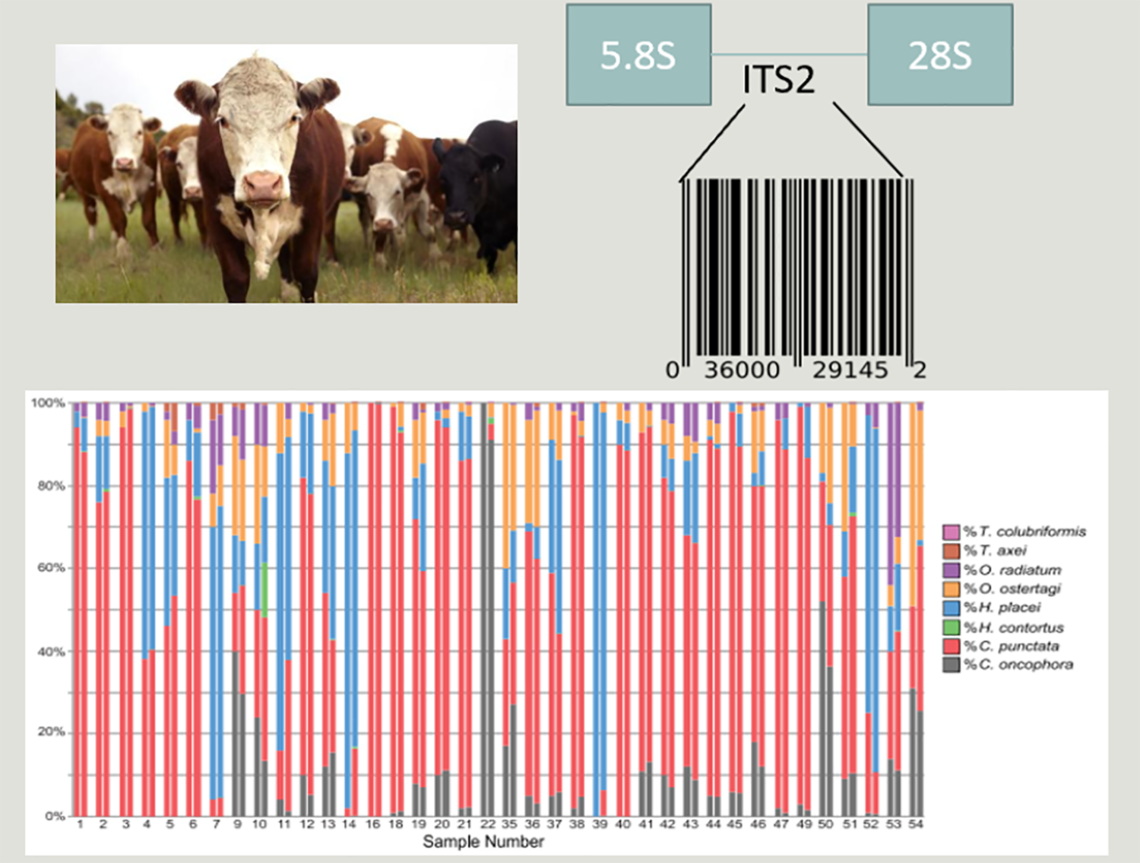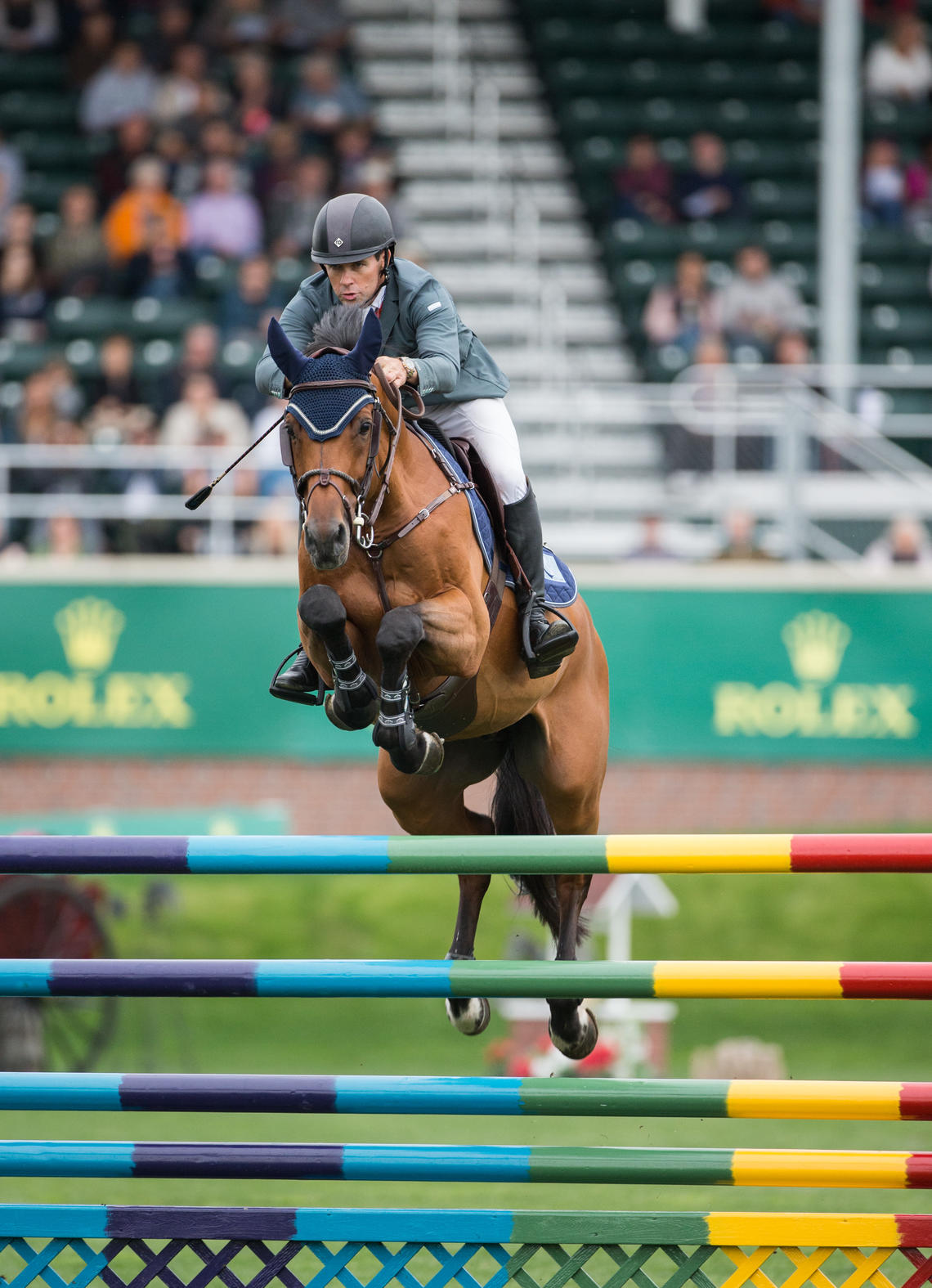Sept. 17, 2019
UCalgary undergrad wins $10,000 prize at Calgary International Equine Symposium

When Stefan Gavriliuc’s supervisor suggested submitting his undergrad research project to an international equine conference, he thought it might be a bit intimidating, but would be a great learning experience.
Gavriliuc took the advice. And the 22-year-old bachelor of health science in bioinformatics student came back with the $10,000 top prize at the Calgary International Equine Symposium, hosted by the University of Calgary Faculty of Veterinary Medicine (UCVM).
“I am surprised mostly because Stefan is an undergraduate who was competing against senior graduate students and professors,” says Dr. Jocelyn Poissant, PhD, an assistant professor at UCVM, who is long-time collaborator on studies of horses on Sable Island. “But he has effectively been performing at the level of a graduate student for the past two years, and I knew from his practice presentations that he could deliver a near-perfect talk.”
- Photo above: Undergrad Stefan Gavriliuc was shocked when he learned he had won the $10,000 Calgary International Equine Symposium Award. From left: Baljit Singh, Hugh Townsend, Stefan Gavriliuc, Sheila Laverty, Renaud Leguilllette. Photo by Adrian Shellard, for the University of Calgary
The symposium’s focus on innovation and discovery in all areas of equine health and its substantial prize drew established scholars and rising stars from all five Canadian veterinary schools and from universities across North America and beyond.
Using barcodes to identify DNA of parasites in horse manure samples
Gavriliuc presented a new way of analyzing gut parasites in horses, using manure samples from feral herds in southern Alberta and Sable Island, and a horse herd in Kentucky. Through bioinformatics — a process of modelling and visualizing data that combines biology, information engineering, algorithms, and statistics — he created a DNA metabarcoding test that revealed 34 different parasite species and significant differences in infection among individual horses and herds.

A slide from Gavriliuc’s presentation shows what metabarcoding looks like.
Courtesy Stefan Gavriliuc
“All of the participants delivered very interesting presentations,” says Dr. Sheila Laverty, an equine surgeon at the University of Montreal, who was a keynote speaker at the symposium and served on the judging panel. “Consequently, it was a tough decision to choose the recipient of the prize.
"In the end, Stefan’s work was selected because of its highly novel, innovative methodology that holds the promise to advance the field of equine parasitology and improve equine health.”
“And he very elegantly succeeded in making a sophisticated and complex topic easily comprehensible to those outside his discipline,” adds Laverty.
'I didn’t think I would get this far'
The prize was presented in the centre ring of the Spruce Meadows Masters Tournament, where a ringside reception was held for symposium attendees. Gavriluic had no idea he’d won, until he was asked to join Dean Baljit Singh and the judges in the ring.
“I couldn't stop shaking. One of the people beside me said, 'Oh, you must be really cold.'" I said, ‘No, I just can't believe this is real.’"
Gavriliuc is quick to credit the others who collaborated on his research project. The results were generated as part of a large collaborative project involving numerous researchers at UCVM, the University of Saskatchewan, and the University of Kentucky.
“Not only was it an absolute honour to be there, but I also felt that the future was in good hands because of all this groundbreaking stuff that people are conducting in all the corners of the world. I was just happy and thankful to be there. I didn't think I would get this far.”
“What he accomplished is exceptional, regardless of his career stage,” says Poissant.
“Stefan’s research has been a cornerstone of my lab’s progress in the last year, and his efforts and research have had an important influence on how we now conduct nemabiome analyses.”

Stefan Gavriliu received his award during the Spruce Meadows Masters Tournament.
Adrian Shellard, for the University of Calgary




